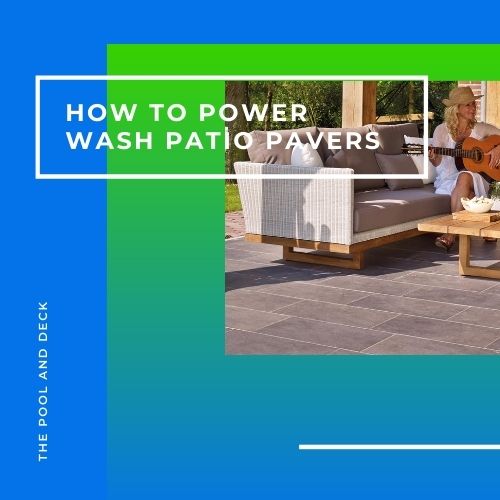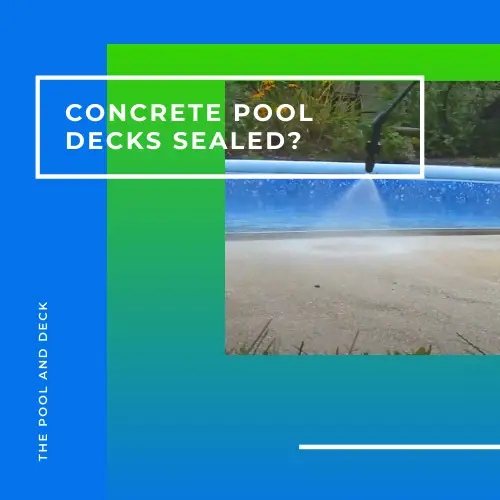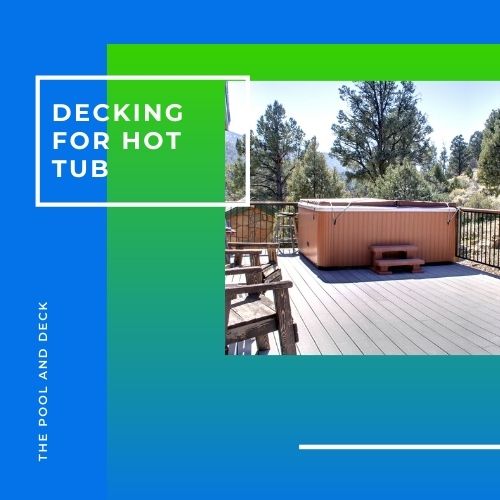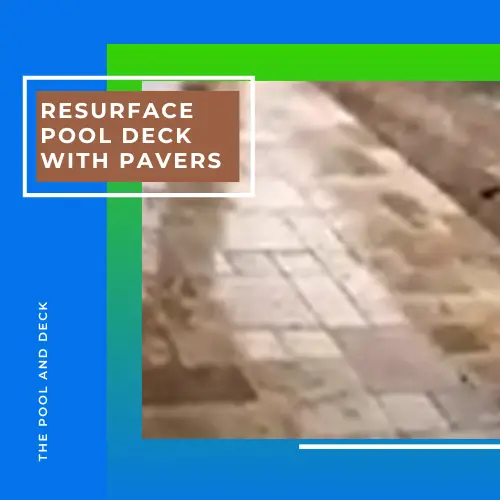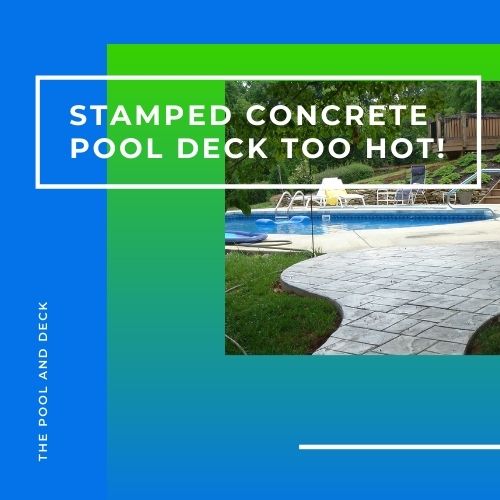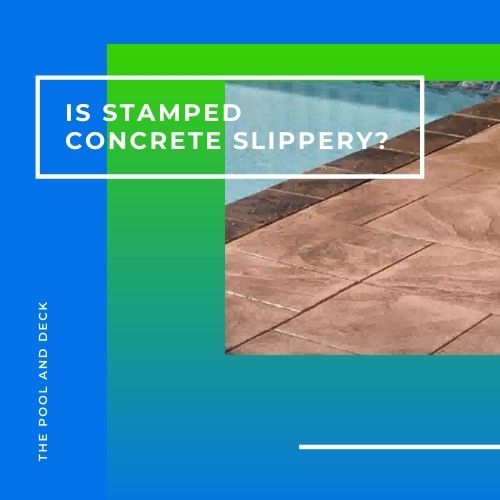Do Marble Pool Decks Need to Be Sealed? (Why It’s Important!)
As an Amazon Associate, I earn from qualifying purchases.
Table of Contents
Do Marble Pool Decks Need to Be Sealed?
You have certainly made a great decision if you installed a marble pool deck. Don’t you love that tinge of envy in the eyes of your guests even as they compliment you on your stunning pool deck. You accept the compliments gracefully. But you worry, don’t you? How long will the beauty last? Do marble pool decks need to be sealed?
Marble pool decks need to be sealed. Marble, though not as porous as say travertine, is still quite porous. A marble pool deck, that is not sealed, will get stained permanently from spills and corroded by pool chemicals.
Marble may not be the most popular paver for pool decks, but it is definitely the most exquisite one. A marble pool deck can magically transfer you to the romance of Taj Mahal or the gracefulness of Trevi fountain. Marble is translucent and timeless!
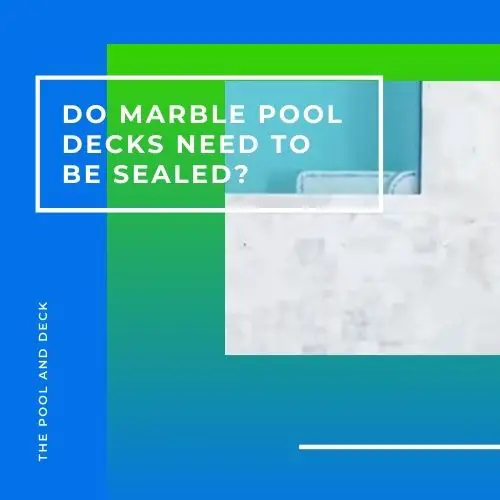
4 Popular Stone Pavers
Marble, Granite, Limestone and Travertine are four popular pavers when it comes to pool decks. While all four are natural stones, they differ from each other. Each went through a different geological process, under the crust of the earth, eons ago.
Geologists classify most of the rocks as sedimentary, metamorphic or igneous.
- Marble is a metamorphic rock and is mostly composed of calcite. Marble started off as limestone. Limestone buried deep into the earth, changed from a sedimentary rock to a metamorphic rock under severe heat & pressure, to become marble.
- Granite is an igneous rock and is mostly composed of silica (quartz) and alumina. In composition it is different from the three above. Granite was formed when hot molten magma within the earth’s crust cooled and solidified.
- Limestone is a sedimentary rock and is mostly composed of calcite from biological activity. Limestone was formed when the shells of marine organisms deposited on the ocean floor and compressed by layers above.
- Travertine is also a sedimentary rock and is mostly composed of calcite from volcanic activity. Travertine was formed when rivers rich in minerals or hot springs evaporated and the residue was compacted by layers of earth above it.
You can block the pores and improve the weather resistance of marble pavers by sealing them. On the flip side, marble pool decks, when sealed, will be more slippery. You must always use a non-slip additive in the topical sealer.
What Happens If You Don’t Seal Marble?
Marble is more commonly used as countertops or floor tiles in kitchens, bathrooms etc. The marble slabs or tiles are highly polished to a mirror finish. The polishing process, in fact, seals the pores of the marble. So marble used indoors need not be sealed.
However, marble pavers used on pool decks, patios or other outdoor areas are finished to provide texture. Sandblasted, tumbled, flamed are some finishes that add texture to the marble paver and increase traction. The pores in the marble do not get closed.
Marble pool decks that are not sealed, run the risk of:
1. Getting Stained
Marble is available in a wide range of earth and natural colors. Pastel, rather than deep shades are more popular when it comes to marble pool decks. White marble is a perfect backdrop to the crystal clear blue of the pool. A scene from a Greek island!
White (or for that matter, ivory, light gray or beige) marble is not going to look as pristine if it has stains of red wine. Accidental spills are bound to happen when you entertain.
An unsealed marble pool deck will not just get stained. The stain will penetrate deep into the marble paver. It will be impossible to get it out!
2. Fading
You may have chosen to go with a warm earth color, such as ivory, beige or brown, for your marble pool deck. The color will gradually fade under the harsh UV rays from the sun. If the marble pool deck has not been sealed, it will lose its beauty under constant exposure to sunlight.
The heavy investment that you made on the marble pool deck will seem quite futile!
3. Getting Scratched
Marble pavers are hard & tough but not as hard & tough as granite pavers. Bare feet will not cause any harm to the pavers. But movement of deck furniture (chairs, recliners, umbrellas) and pool equipment (vacuum cleaners, pumps) can result in scratches.
Marble pool decks that have been sealed will be better protected! On the flip side a marble pool deck that has been sealed will be more slippery.
What Is a Good Sealer for Marble?
There are three types of sealers for natural stone pavers:
Enhancing Stone Sealers:
Enhancing Stone Sealers penetrate and bring out the natural vibrant colors locked within the stone. They work best with travertine and limestone pavers but can be used on marble pavers too!
Refresh your aged marble pool deck with a coat or two of Black Diamond Color Enhancer Sealer
Impregnating Stone Sealers:
Impregnating Stone Sealers are purely functional. Like enhancing sealers, they penetrate into the pores of the natural stone paver or tile, solidify and block them. Water, stains or harmful chemicals can not enter the pores.
Such sealers do not alter the look or texture of the stone paver.
A sandblasted or tumbled marble paver continues to look the same and continues to be slip resistant. Penetrating sealers will be stain resistant to a degree as the stain will not be able to penetrate the pores (already blocked by the sealer).
I recommend Miracle Sealants 511QT6 511 Impregnator Sealer. It is very effective at protecting against water, stains & slippage.
Topical Stone Sealers:
Topical Stone Sealers penetrate a bit, but mostly form a glossy or egg-shell, protective film on the marble surface. They impart a rich lustrous look to the marble paver and will make it stain resistant and easy to clean.
For a wet look I recommend Foundation Armor AR350 Solvent Based Acrylic Wet Look Sealer. However, topical sealers smoothen out the texture of the Marble making it slippery.
If you expect the sealed area to be wet most of the time, then better add a non-slip additive to the sealer. There are several popular brands such as SureCrete’s SureGrip, H&C SharkGrip or Matcrete’s Rhino Grip.
Thank you very much for reading the post. I do hope you found it informative and helpful.


